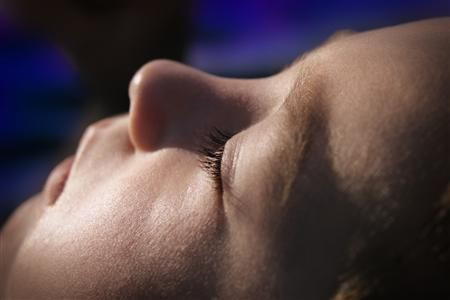World Sleep Day 2015: Tips For Getting The Most Restful Sleep

Friday is World Sleep Day, an international event held every year by the World Association of Sleep Medicine. World Sleep Day began in 2008 and celebrates sleep, one of the most important things people can do for their bodies.
This year’s slogan is “When sleep is sound, health and happiness abound.” However, recent surveys say that more than 100 million people around the world aren’t getting enough sleep. The Centers for Disease Control and Prevention says that a lack of sleep can lead to depression, premature aging and weight gain. The CDC suggests a number of ways to improve sleep.
Stop Drinking Caffeine Past 4 P.M.
If you’re caffeine-sensitive, don’t drink any coffee, tea or other caffeinated beverages past 4 p.m. Avoid the stimulant at all costs, and switch instead to caffeine-free drinks, juice or water.
Don’t Exercise Past 8 P.M.
Working out is great, but it can give you a rush of energy that may prevent you from falling asleep later. Try to work out in the morning, or right after work.
Take A Supplement
Magnesium and melatonin supplements may help you get more restful sleep. Take them an hour or two before bedtime.
Turn Off All Electronic Devices
Instead of spending the last hour before you fall asleep browsing Facebook or Twitter, take some time to do some light reading. Computers, televisions and smartphones stimulate your senses too much, making it more difficult to fall asleep later.
Don’t Sleep In On The Weekends
It may be tempting to stay in bed until noon on Saturdays, but that may disrupt your sleep for the rest of the week. Keeping a regular sleep schedule will allow your brain to get used to normal sleep and waking times, leading to more peaceful sleep.
© Copyright IBTimes 2024. All rights reserved.






















